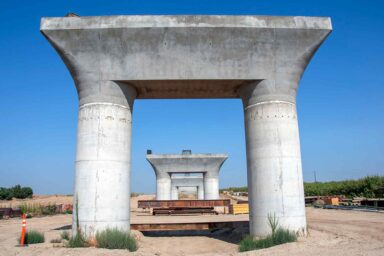 Anyone who still wonders why the Bush administration invaded Iraq would do well to become familiar with an institution whose existence few Americans are aware of: the American University of Iraq-Sulaimaniya.
Located in Kurdistan, at the nexus of northern Iraq's border with Iran and Turkey, AUI-S opened its doors in 2007. At the time, Thomas Friedman of the New York Times wrote about it with the sort of wide-eyed enthusiasm that had generally accompanied the invasion itself four years before. "Imagine for a moment if one outcome of the U.S. invasion of Iraq had been the creation of an American University of Iraq...Imagine if we had created an island of decency in Iraq...Well, stop imagining."
[Read the rest]
Anyone who still wonders why the Bush administration invaded Iraq would do well to become familiar with an institution whose existence few Americans are aware of: the American University of Iraq-Sulaimaniya.
Located in Kurdistan, at the nexus of northern Iraq's border with Iran and Turkey, AUI-S opened its doors in 2007. At the time, Thomas Friedman of the New York Times wrote about it with the sort of wide-eyed enthusiasm that had generally accompanied the invasion itself four years before. "Imagine for a moment if one outcome of the U.S. invasion of Iraq had been the creation of an American University of Iraq...Imagine if we had created an island of decency in Iraq...Well, stop imagining."
[Read the rest]
In 2008, Crescent Petroleum paid for American University of Iraq representatives to attend the “GetEnergy” summit in London, whose sponsors include the British firm, BP. As GetEnergy says in promotional materials:
We don’t provide education or training ourselves, but we help find the best fit between organizations that do (universities and training providers), and companies looking for education and/or training programmes in the oil and gas industry.
Afterward, former AUI-S chancellor Owen Cargol talked about how he looked forward to working closely with Crescent to use the university as a research center for the oil and gas industry. After the event, the AUI-S chancellor noted:
We are grateful for the support of Crescent Petroleum. AUI-S will use this opportunity to forge fruitful joint institutional partnerships with universities from around the world and the various energy companies to make AUI-S a regional center of excellence in all research aspects of the oil and gas industry in Iraq and beyond.
In the fall of 2009, the university launched an entity it dubbed the Twin Rivers Institute. TRI is described as an “advanced studies center for science and technology which will provide modern solutions to the problems facing industries, government agencies, and others working in the region.” With a division dedicated to Remote Sensing, a process used to detect oil, the Twin Rivers Institute embodies AUI-S’s promise to become a center of excellence in research for the petroleum industry. (The university itself offers the following degrees: a Master’s in Business Administration and Bachelor’s in International Relations; Information Systems and Technology; Business Administration; and Environmental Science and Engineering.)
SETTLING IN

Whether because of the turmoil, or despite it (they say the latter), both Mitchell and Agresto resigned last year and have returned to the United States. But the institution and the objectives behind it continue. Evidence that AUI-S may be part of a larger geopolitical vision comes in the form of yet another American institution of higher learning, this one the American University of Afghanistan.
In 2005, CBS News covered Laura Bush making a “secret” trip to Afghanistan to announce a $40 million USAID-funded grant to support university-level education and combat illiteracy. Since then, the American University of Afghanistan has opened its doors under the leadership of Dr. C. Michael Smith. Previously, Smith was a founder and president of another little-known entity, the American University of Nigeria, which has the added credibility of such respected board members as South Africa’s Archbishop Emeritus Desmond Tutu. So far, the American University of Afghanistan [AUAF] is expanding with no hint of the chaos and scandal that have shaken AUI-S. One intriguing note is one of the entities listed as partnering with AUAF: Goldman Sachs.
It’s hard to know where all this is going, or the long-term implications. But at least where Iraq is concerned, Thomas Friedman’s “Island of Decency” is no certainty. Were we seeing a proclivity to send the most inspiring educational figures—and perhaps to a place not packed with oil—we might have reason to be more hopeful.
# #
Former AUI-S faculty member Mark Grueter, a doctoral candidate in history, provided research and reporting assistance.
WhoWhatWhy plans to continue doing this kind of groundbreaking original reporting. You can count on it. But can we count on you? We cannot do our work without your support.
Please click here to donate; it’s tax deductible. And it packs a punch.

